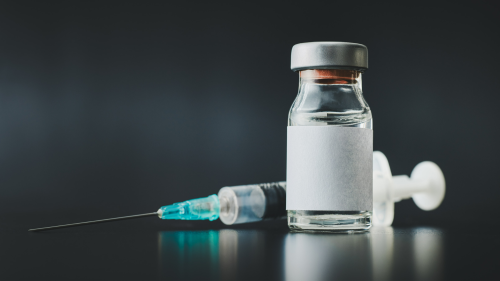
-
Understanding primary immunodeficiency (PI)

Understanding PI
The more you understand about primary immunodeficiency (PI), the better you can live with the disease or support others in your life with PI. Learn more about PI, including the various diagnoses and treatment options.
-
Living with PI
-
Addressing mental health
-
Explaining your diagnosis
- General care
- Get support
- For parents and guardians
-
Managing workplace issues
- Navigating insurance
-
Traveling safely

Living with PI
Living with primary immunodeficiency (PI) can be challenging, but you’re not alone—many people with PI lead full and active lives. With the right support and resources, you can, too.
-
Addressing mental health
-
Get involved

Get involved
Be a hero for those with PI. Change lives by promoting primary immunodeficiency (PI) awareness and taking action in your community through advocacy, donating, volunteering, or fundraising.
-
Advancing research and clinical care
-
Research Grant Program
-
Consulting immunologist
-
Diagnosing PI
-
Getting prior authorization
-
Clinician education
-
Survey research
-
Participating in clinical trials

Advancing research and clinical care
Whether you’re a clinician, researcher, or an individual with primary immunodeficiency (PI), IDF has resources to help you advance the field. Get details on surveys, grants, and clinical trials.
-
Research Grant Program
The Food and Drug Administration’s (FDA) newest framework would limit approved use of updated versions of COVID-19 vaccines to those 65 years of age and older and those under 65 who have specific chronic conditions unless manufacturers run costly, unethical, and time-intensive randomized, placebo-controlled trials. Instead of encouraging the general public to continue to vaccinate against COVID-19, FDA has chosen to enact a framework that will likely limit insurance coverage and access to this vital protection. This framework will put people who are immunocompromised at risk.
While the list of vaccine-eligible chronic conditions includes many immunocompromising conditions, such as primary immunodeficiency (PI), leukemia, and use of immunosuppressive medication, that have been shown to increase the risk of serious COVID-19 infection and death, many immunocompromised people cannot themselves mount protective immune responses to vaccines. Just providing access to these individuals does not mean they are protected from infection.
The best protection for individuals who are immunocompromised is to ensure that there are enough people in the community who are vaccinated, creating community or ‘herd’ immunity to minimize everyday exposure to COVID-19. Many immunocompromised people still wear masks in public precisely because COVID-19 vaccination rates are so low. In justifying its change in policy, the FDA cites recommendations (note, not marketing authorizations or approvals from FDA-equivalent agencies) in several other countries as comparators, including Germany, Belgium, and Canada; however, many of these countries explicitly recommend the COVID-19 vaccine for healthcare workers or household contacts of the immunocompromised, at least acknowledging the role of community immunity.
The agency has likened the new framework to that for vaccines against respiratory syncytial virus (RSV), however, RSV vaccines have not been tested in younger, healthy individuals. In contrast, all three COVID-19 vaccines have been tested in healthy individuals spanning many age ranges. The new FDA framework treats COVID-19 vaccines updated to target different antigens as entirely new vaccines, which they are not. There is no justification for approving updated COVID-19 vaccines in only certain populations.
FDA has abdicated its responsibility to protect people who are immunocompromised. A decrease in vaccination rates weakens community immunity, putting those with compromised immune systems at a higher risk of severe, preventable infections.
This framework is a step backward in efforts to prevent the spread of infectious disease.
Immunocompromised Collaborative
The Immune Deficiency Foundation is the founding member of the Immunocompromised Collaborative, the united voice of communities whose health status makes them most vulnerable to threats from infectious disease.
Get to know the CollaborativePress room
A hub of information for journalists interested in writing about the Immune Deficiency Foundation with direct links to learn more about the organization, primary immunodeficiency, and those affected.
Learn more about Immune Deficiency Foundation2026 PI Conference
Join us June 25-27, 2026, in San Antonio, Texas, for a transformative experience where stories connect, voices unite, and journeys inspire. No matter where you are in your primary immunodeficiency journey, access expert-led education, meaningful connections, and cutting-edge insights from world-renowned immunologists.
Register nowRelated resources

Foundation provides guidance amid changing vaccine recommendations

Education policy changes could impact students with PI

Foundation to follow medical societies' vaccine schedules in light of ACIP hepatitis B decision
Sign up for updates from IDF
Receive news and helpful resources to your cell phone or inbox. You can change or cancel your subscription at any time.





The Immune Deficiency Foundation improves the diagnosis, treatment, and quality of life for every person affected by primary immunodeficiency.
We foster a community that is connected, engaged, and empowered through advocacy, education, and research.
Combined Charity Campaign | CFC# 66309

